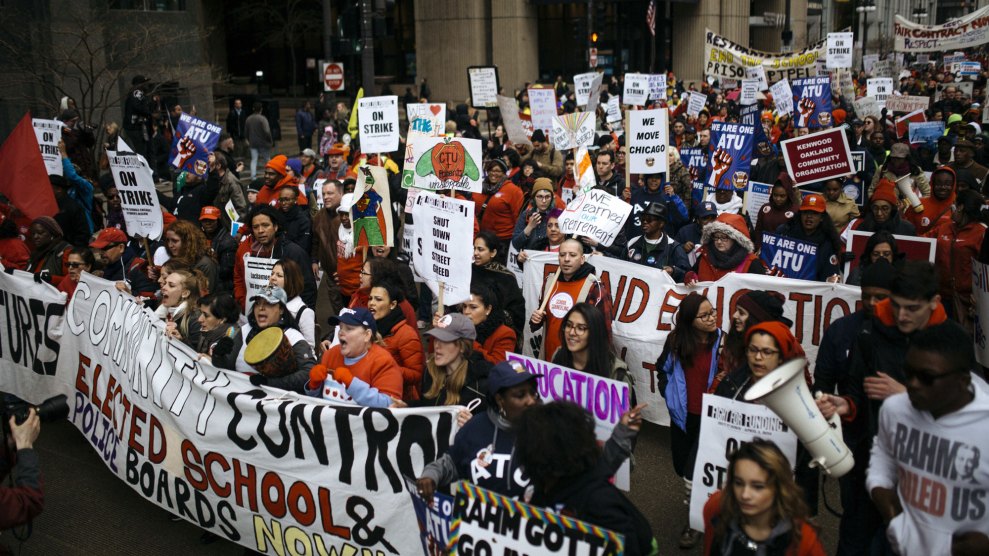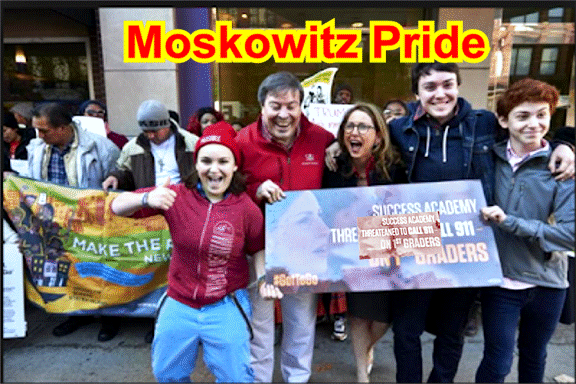The Nation’s First Major Charter School Strike Is Brewing in Chicago
“We’ve had less rights, less pay, and less benefits. At the end of the day, these are our schools.”
For the last five years, Martha Baumgarten has taught fifth-graders at Carlos Fuentes Elementary School, a charter school on Chicago’s North Side. She started working at the school because of its commitment to helping Latino students, but every year her classes have been overcrowded, even by city standards. This year, she has 32 students.
“That a lot of fifth-graders in one room. It’s not what’s best for kids,” Baumgarten says, noting that some of her colleagues have left for traditional public schools in the city and surrounding suburbs, where wages are higher and class sizes lower. “It’s not an environment where I can do my job as a teacher.”

Protesters take to the street in Chicago during a one-day strike in April 2016. Chicago teachers demanded demanding that lawmakers provide the funding needed for proper education and other programs. Jim Vondruska/NurPhoto/ZUMA
Carlos Fuentes Elementary is one of the 15 campuses run by Acero Schools, one of Chicago’s largest charter networks. In their latest contract negotiations, Acero teachers like Baumgarten have pushed for smaller class sizes, higher pay, more teacher diversity, and more special-education resources. If their demands aren’t met, 500 teachers, counselors, and other staffers are threatening to walk out starting December 4 in what’s being touted as the country’s first major charter school teacher strike.
“We’re ready to fight,” Baumgarten says, “until the very end.”
The first-of-its-kind work stoppage would come on the heels of massive statewide teacher walkouts in West Virginia, Oklahoma, Arizona, Colorado, Kentucky, and North Carolina earlier this year—protests that Baumgarten says served as a “rallying cry” for her Acero colleagues. And since the beginning of the school year, teachers in both Los Angeles and Oaklandhave threatened to strike over ongoing contract disputes.
But what makes the potential Acero strike different is that, unlike at traditional public schools, where 70 percent of teachers are in a union, just 11 percent of charter school teachers are unionized. Across the country, 781 of Continue Reading: The Nation’s First Major Charter School Strike Is Brewing in Chicago – Mother Jones
















